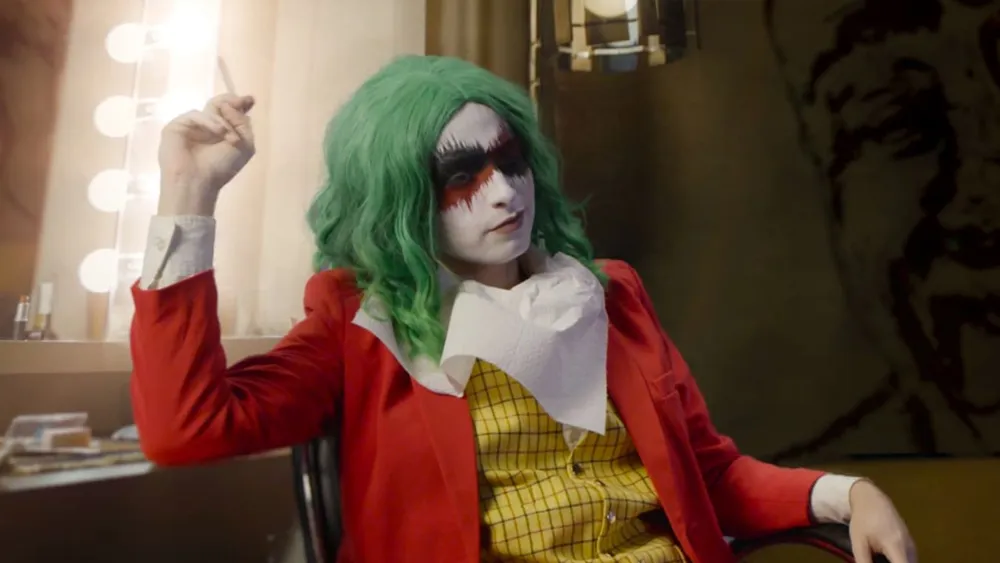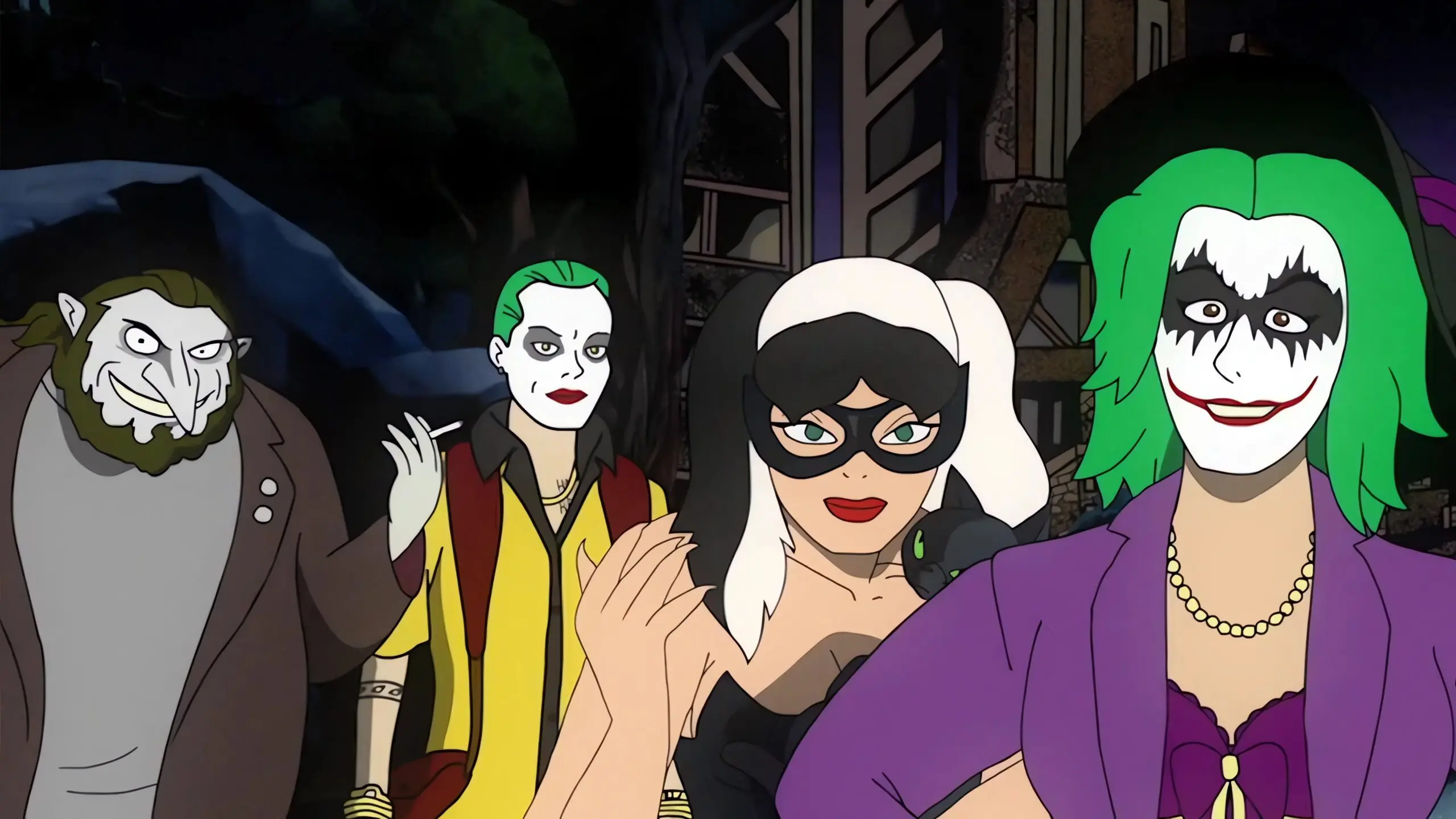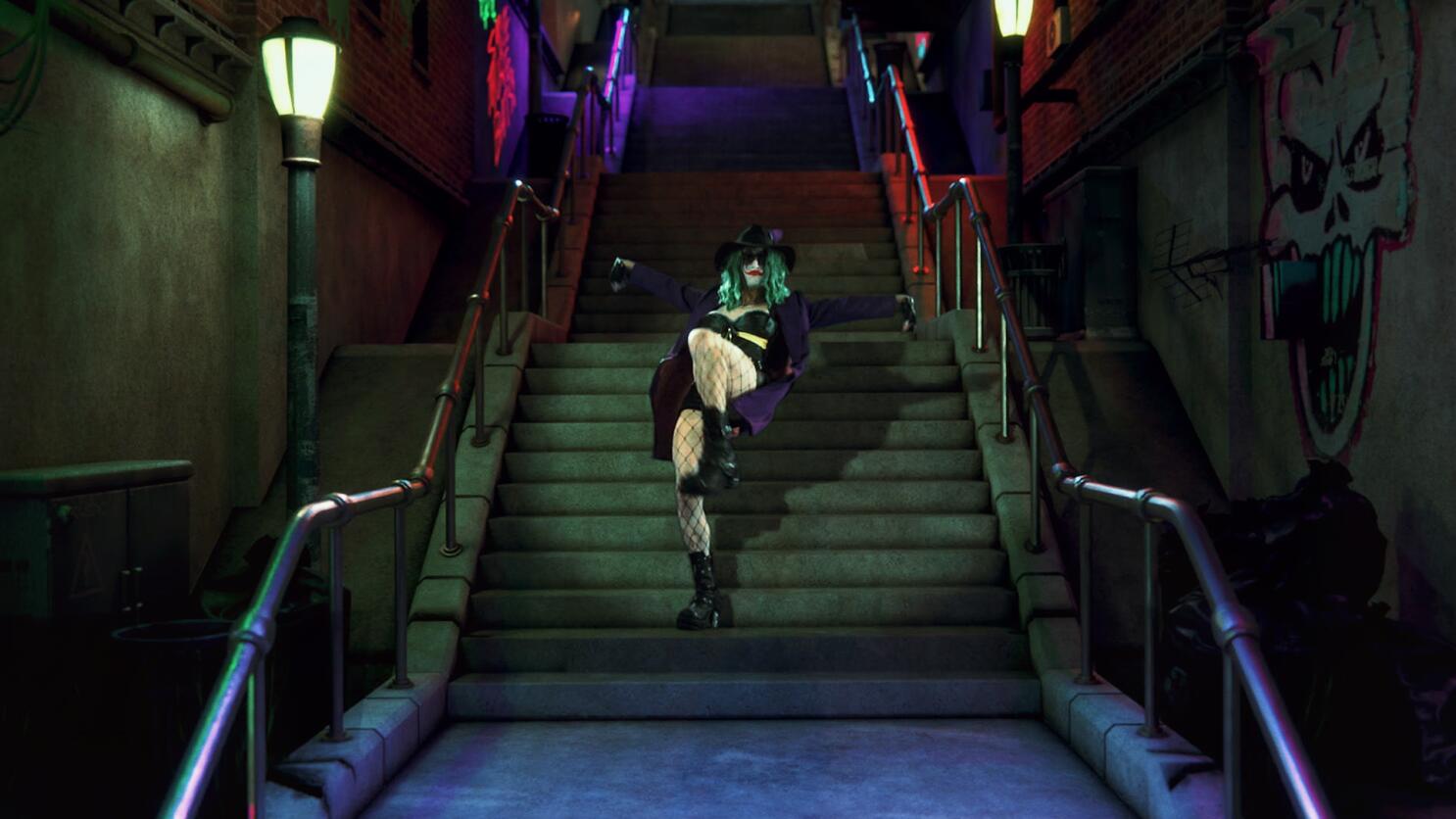I recently stumbled upon The People’s Joker on Letterboxd, and I have to say, it instantly captivated my interest. As someone fascinated by the Joker and the broader Batman Universe, I couldn’t help but be drawn in by the movie poster. The striking design features the character’s signature white face paint, with dramatic red and green accents that evoke the chaotic essence of the Joker.
Upon clicking on the film’s description, I discovered this wasn’t an official DC Comics production, which only intensified my intrigue. It seemed to offer a fresh and unconventional take on the beloved character. Curious to learn more, I delved deeper into the film’s details and themes, eager to see how it would reinterpret the mythos surrounding the Joker.
My excitement grew as I explored reviews and discussions, highlighting the film’s indie roots and unique narrative approach.
After the film premiered at the prestigious 2022 Toronto International Film Festival, the director faced an unexpected challenge when she received a strongly worded letter from Warner Bros. Discovery, the parent company of DC Comics. The letter communicated its concerns regarding potential copyright infringement related to the film’s content, which pressured the director and her team to refrain from screening the movie further.
Several planned screenings were abruptly canceled in response to these developments as the production team sought to navigate the complex legal landscape and protect themselves from potential repercussions. The situation was precarious, and the future of the film seemed uncertain.
Determined to defend their creative vision, the director and her legal team worked diligently to articulate their position. They ultimately convinced Warner Bros. that their film qualified as a case of fair use under copyright law, especially since it was crafted as a parody. They added a disclaimer at the film’s beginning to further safeguard their stance, clearly stating that it was intended as a parody work.
This strategic approach proved effective, leading to a breakthrough in discussions with Warner Bros. As a result, they were granted permission to display the film to the public without legal hindrance. Following this resolution, The People’s Joker began its theatrical run in April 2024.
The plot is fundamentally a coming-of-age queer story centered around a trans woman. However, it is presented through the lens of the Batman Universe. The film begins with a dedication “To Mom and Joel Schumacher,” the latter the director of Batman Forever. In this film, we see how Schumacher’s work awakens our main character, who ultimately comes to identify as Vera or “Joker the Harlequin.”
The film opens in a dystopian version of Smallville. A young Vera Drew, played by Griffin Kramer (their dead name is bleeped for most of the movie), begins questioning whether they were born in the right body. In response, their mother takes them to Arkham Asylum, where the child is prescribed Smylex, a drug that forces the user to smile, regardless of their true feelings.
In a flash-forward, our protagonist moves to Gotham City to pursue a comedy career, aiming to perform on “UCB Live,” a show with an SNL vibe. Although they don’t make it through the process, they befriend another struggling comedian, The Penguin. Together, they start their own “anti-comedy” club, filled with other misfits like themselves.
From this point, the story develops with side quests highlighting the evolution of Vera Drew, also known as Joker the Harlequin. One of the appealing aspects of this film is its use of graphics and green screen technology to enhance the narrative. The grassroots vibe created by these elements reflects the filmmakers’ resourcefulness and invites viewers to appreciate the story more personally, highlighting the artistry behind independent cinema. More than 100 artists were crowdsourced to contribute to this film.
Co-writer and director Vera Drew delivers a captivating performance in her leading role. She combines charisma with a unique flair that engages the audience from the outset. Her portrayal is infused with humor and a sense of playfulness that contrasts beautifully with the deeper, more challenging themes woven throughout the narrative.
Beneath the lighthearted exterior lies a poignant exploration of personal growth and self-acceptance as Drew’s character embarks on discovering her true identity and learning to embrace her authentic self. This duality in her performance adds significant depth to the story, making it entertaining and profoundly relatable. I immensely enjoyed her personality and hope she goes far in her career.
The concept of using Batman as an allegory for Drew’s transition journey originated when co-writer Bri LeRose suggested that Drew re-edit the film, Joker. This initiative proved to be a transformative experience for Drew. As she delved into the re-editing process, she began to see striking parallels between the narrative of Joker and her life experiences, particularly concerning themes of identity, struggle and resilience.
This realization sparked a creative inspiration that ultimately led to the development of The People’s Joker. Through this project, Drew aimed to explore and express her journey in a way that resonated with the broader themes in the Batman Universe.
Overall, I would rate this movie four out of five stars. From the beginning, I was captivated by the stunning visuals and the intriguing storyline on the screen. The cinematography and use of color added to the immersive experience, drawing me in and keeping my attention for most of the film.
However, I lost some initial enthusiasm as I reached the third act. I questioned the plot’s direction and wondered where the narrative was heading. While the film maintained a unique, trippy vibe, enhanced by a pulsating bass beat, things took a rather unexpected turn toward the end.
While I liked this shift, it felt disjointed compared to the earlier parts, and by that point, I was ready for the story to wrap up. Overall, it was a memorable experience, but the conclusion perplexed me. Despite its flaws, I still recommend this film, especially if you enjoy satire and parody movies.
You can stream The People’s Joker on MUBI now.



